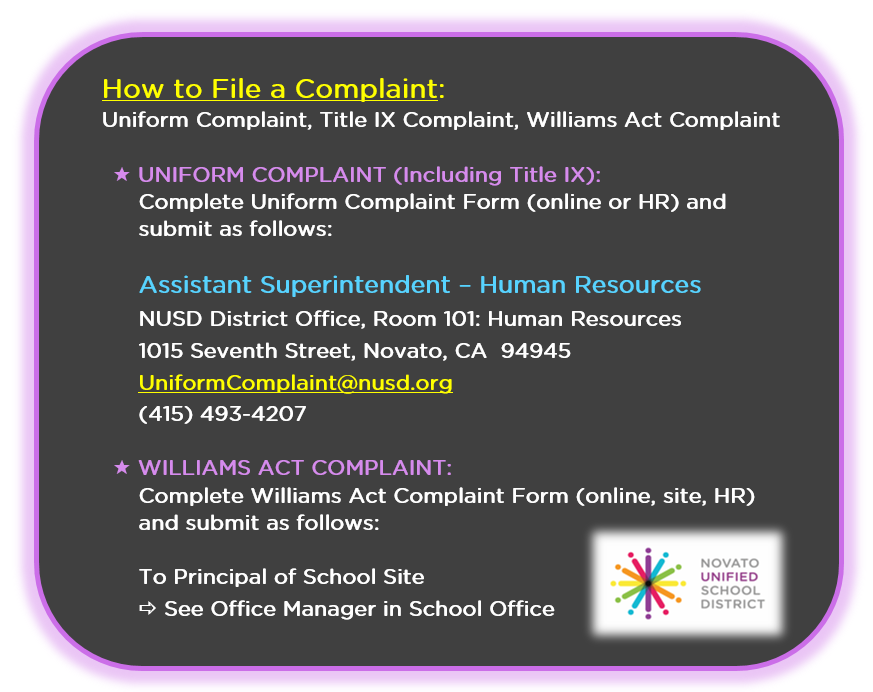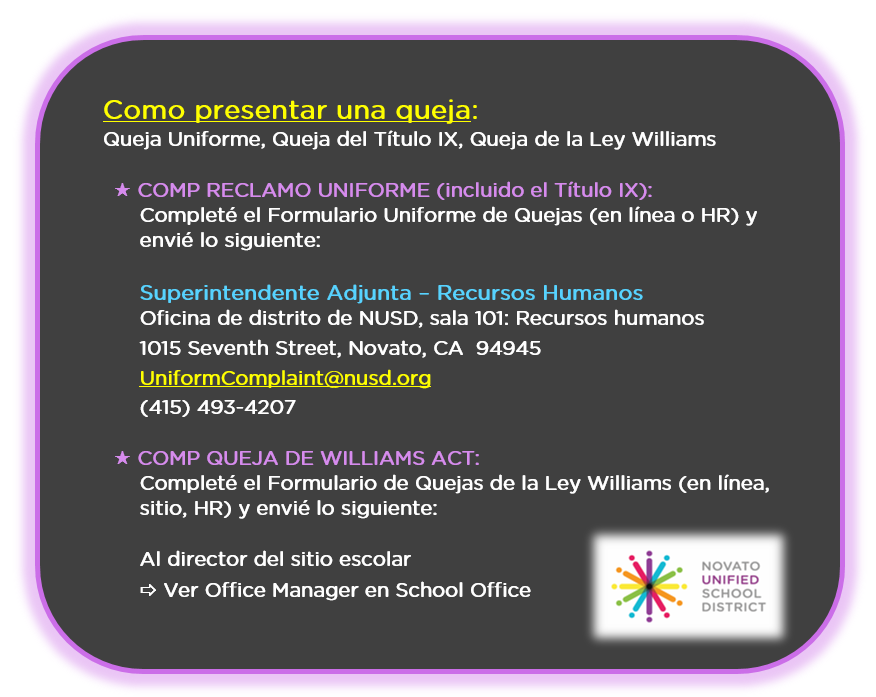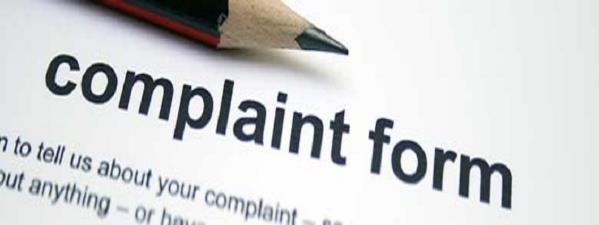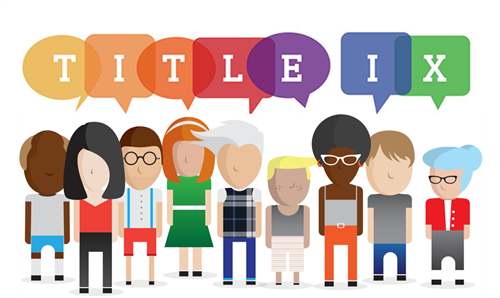


Uniform Complaint Procedures (UCP)
Pursuant to California Education Code § 35186:
Uniform Complaint Procedures (UCP) govern complaints of discrimination, harassment, violence, intimidation, and bullying on the basis of actual or perceived age, sex, sexual orientation, gender, gender identity, gender expression, ethnic group identification, race, ancestry, national origin, religion color, or mental or physical disability or on a person’s association with one or more of these actual or perceived characteristics in any program or activity that receives or benefits from state financial assistance.
The UCP is also used when addressing complaints alleging failure to comply with state and/or federal laws in Career Technical Education, Child Care and Development Programs including state preschool, Consolidated Categorical Programs, Foster and Homeless Youth, Local Control Funding Formula and Local Control Accountability Plans, Nutrition Services – USDA Civil Rights, Special Education, and Tobacco-Use Prevention Education Program. The UCP Form is available at the main office of each District school as well as the District Office (Human Resources).
Learn More:
Williams Act Complaints
Pursuant to California Education Code § 35186
There should be sufficient textbooks and instructional materials. That means each pupil, including English learners, must have a textbook or instructional materials, or both, to use in class and to take home.
School facilities must be clean, safe, and maintained in good repair.
There should be no teacher vacancies or misassignments. There should be a teacher assigned to each class and not a series of substitutes or other temporary teachers. The teacher should have the proper credential to teach the class, including the certification required to teach English learners if present.
Teacher vacancy means a position to which a single designated certificated employee has not been assigned at the beginning of the year for an entire year or, if the position is for a one-semester course, a position to which a single designated certificated employee has not been assigned at the beginning of a semester for an entire semester.
Misassignment means the placement of a certificated employee in a teaching or services position for which the employee does not hold a legally recognized certificate or credential or the placement of a certificated employee in a teaching or services position that the employee is not otherwise authorized by statute to hold.
See below for access to a complaint form. A form may also be requested from the office of each school site or from Human Resources at the district office.
District Compliance Officer / Title IX Coordinator
The Governing Board has designated the following Compliance Officer to receive and investigate all District complaints to ensure District compliance with the law:
⇒ Assistant Superintendent – Human Resources
Email: [email protected]
Phone: (415) 493-4207
Novato Unified School District Office: Human Resources – Room 101, 1015 Seventh Street, Novato, CA 94945
Investigators:
Assistant Superintendents and Administrators are assigned as appropriate
Decision Makers:
- Initial Determination: NUSD Legal Counsels – AALRR (Atkinson, Andelson, Loya, Ruud & Romo)
- Appeal: NUSD Superintendent










